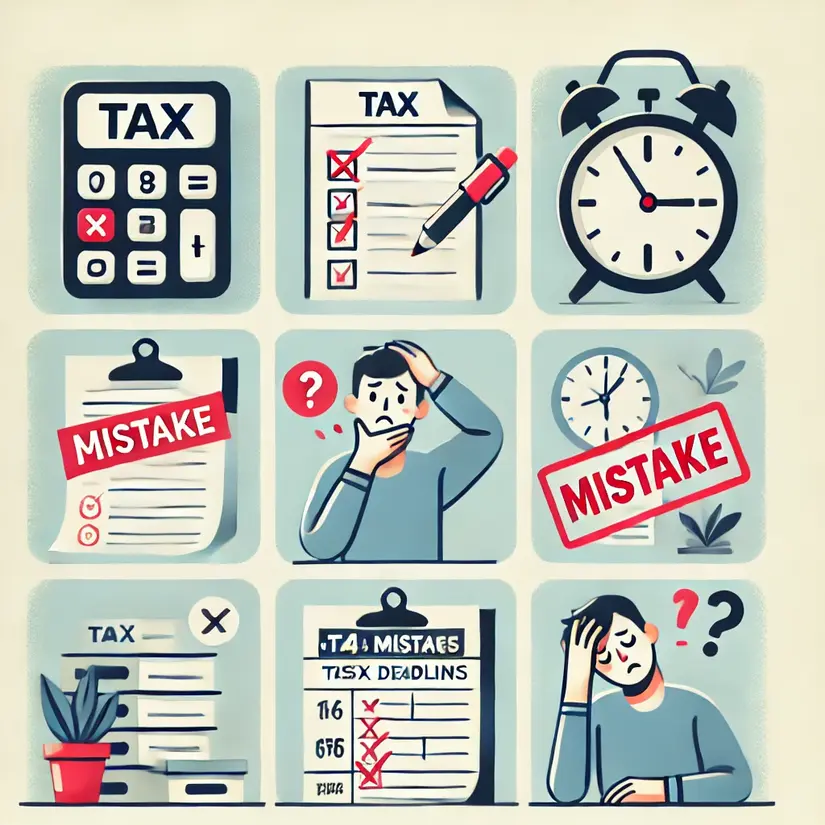When it comes to taxation, there are several common mistakes that individuals and investors make. It is very important to understand that making mistakes on the tax returns can lead to unnecessary huge Tax dues and penalties.
Note that this post isn’t formal tax advice. This article was produced by Suma Abhishek, a US qualified tax specialist.
Here are few common mistakes.
Capital Gain Transaction Reporting Mistakes
Misunderstanding Capital Gains Tax
Many people don’t realize that short-term capital gains (from assets held for one year or less) are taxed at ordinary income tax rates, while long-term capital gains benefit from reduced tax rates.
Failing to Utilize Losses
Not leveraging capital losses to offset gains is a missed opportunity. You can use capital losses to offset capital gains, and if losses exceed gains, you can deduct up to $3,000 of the excess loss from other income ($1,500 if married filing separately).
Neglecting to Track Cost Basis
Not keeping detailed records of the purchase price of assets can lead to errors in calculating capital gains or losses when selling. This can result in overpaying taxes or missing out on deductions.
Misjudging Tax Implications of Asset Sales
Selling assets without understanding the tax implications can lead to unexpected tax liabilities. It’s important to plan for how the sale will affect your taxes and to consult with a tax advisor if needed.
Ignoring Tax-Advantaged Accounts
Failing to take full advantage of tax-advantaged accounts like IRAs, 401(k)s or HSA can lead to missed opportunities for tax deferral or tax-free growth.
Overlooking Changes in Tax Law
Tax laws are subject to change, and what was true in a previous year may no longer apply. Staying updated on tax law changes and how they impact your assets is important for effective tax planning.
Not Consulting a Tax Professional

Attempting to manage complex tax issues without professional guidance can lead to mistakes. Consulting with a tax advisor or financial planner can help ensure you’re making informed decisions and optimizing your tax situation.
Not Planning for Estate Taxes
Individuals might not plan adequately for estate taxes, which can be significant for larger estates. Estate planning strategies can help minimize these taxes.
Overlooking the Impact of Dividends
Investors might not account for the tax implications of dividends, which are taxable even if reinvested. Understanding how dividends impact your overall tax liability is crucial.
Not checking Bank Account or Routing Numbers
Individuals often make the mistake of mentioning the wrong Bank Account or Routing Numbers. When the IRS accepts the returns, you won’t be liable to change your banking information.
Do It At Last Minute
Most of the individuals wait till last minute to file the tax return. This results in not filing the return before deadline and end up paying penalties.
Conclusion
We understand that Return filing may be tricky at times. However, considering all the hard work you’ve put into earning the money, it’s your responsibility to get the necessary assistance to report everything correctly and reduce the tax payment and be compliant as much as possible.
To avoid any costly mistakes, collaborate with experienced tax advisors. They possess the expertise needed to guide both individuals and business owners through the complexities of tax return filing, identify opportunities for tax savings, and ensure that all legal requirements are fully met.
Pained by financial indecision? Want to invest with Adam?

Adam is an internationally recognised author on financial matters, with over 760.2 million answer views on Quora.com, a widely sold book on Amazon, and a contributor on Forbes.





















Discussion about this post